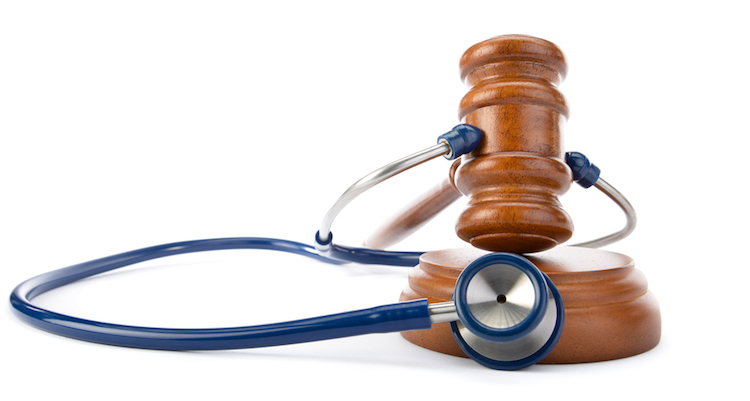In written answers, Barrett notes '3 hurdles' to overturning Affordable Care Act but avoids specifics

Image from Shutterstock.com.
U.S. Supreme Court nominee Judge Amy Coney Barrett mentioned “three hurdles” to overturning the Affordable Care Act when she provided written answers Tuesday to follow-up questions from Senate Judiciary Committee members.
Law360 sees Barrett’s answers as providing hints that she might not strike down the entire health care law if the Supreme Court overturns its requirement for individuals to carry health insurance. The story notes that Barrett was light on specifics, however.
The new challenge to the law, California v. Texas, asks whether the law remains constitutional after Congress eliminated the tax penalty for failure to carry minimum insurance coverage.
During Barrett’s confirmation hearing, Democrats highlighted stories of people who were helped by the ACA and its protections for preexisting conditions and insurance coverage without caps.
When the Senate Judiciary Committee’s 12 Republicans voted Thursday to send Barrett’s nomination to the full Senate, the 10 Democrats boycotted the hearing. Their empty seats were filled with large pictures of people who depended on the ACA.
Barrett said in her written answers the pending Supreme Court case involves three separate questions, and “the plaintiffs would have to clear all three hurdles” to get the entire law overturned.
Barrett said the three questions before the Supreme Court are whether the plaintiffs have standing, whether reducing the penalty to zero made the insurance mandate unconstitutional, and whether the unconstitutional provision can be severed from the rest of the law.
Barrett had said during her confirmation hearing the severability issue involves figuring out whether Congress would want the whole statute to fall if one provision is unconstitutional. In a written answer, she explained how a court figures out what Congress wants by referencing a plurality opinion by Justice Brett M. Kavanaugh in a July case that struck down an exception to the federal ban on robocalls. The Supreme Court struck down the exception but allowed the rest of the law to stand.
Barrett said the Supreme Court explained in the robocall opinion that courts “hew closely” to the text of any clauses in a law that allow the remainder of a law to stand if one portion is found unconstitutional. If a statute doesn’t have such a clause, courts should presume that an unconstitutional provision in a law is severable from the rest of the law, Kavanaugh said in the opinion.
Barrett sidestepped many other questions, including a question about whether systemic racism exists, CNN reports.
“I believe that racism persists in our country but, as I explained at the hearing, whether there is ‘systemic racism’ is a public policy question of substantial controversy, as evidenced by the disagreement among senators on this very question during the hearing,” Barrett wrote. “As a sitting judge and judicial nominee, it would be inappropriate for me to offer an opinion on the matter.”
On the issue of climate change, Barrett said the Supreme Court has described the topic as “controversial” and a “sensitive political topic.” As a result, it wouldn’t be appropriate to comment, Barrett said.
According to CNN, Barrett answered a question about previous Supreme Court rulings in nearly the same way nearly 40 times.
“It would not be appropriate for me to opine further on this question; as Justice Kagan explained, it is not appropriate for a judicial nominee to ‘grade’ or give a ‘thumbs-up or thumbs-down’ to particular cases,” Barrett often said.
Fix the Court, a court transparency group, read Barrett’s responses to discern her opinions on topics of court access and disclosure. Among the answers noted by the group:
• Barrett said she would “keep an open mind regarding live broadcasts of Supreme Court oral arguments.” The answer was provided in response to a question about live audio.
• Barrett refused to say whether it is wrong for a justice to accept hospitality from someone who has interests before the court. She said she would “fully and faithfully apply all ethical rules” when asked whether she would refuse any gifts, including personal hospitality, from someone who has business before the Supreme Court.
• When asked whether she would commit to explaining her reasons for recusal or nonrecusal, Barrett said she would commit to “faithfully applying the law of recusal.” Barrett also said her father worked at the Shell Oil Co. for many years. When she was a judge on the 7th U.S. Circuit Court of Appeals at Chicago, Barrett said, she recused herself from cases involving some Shell entities “in an abundance of caution.”



